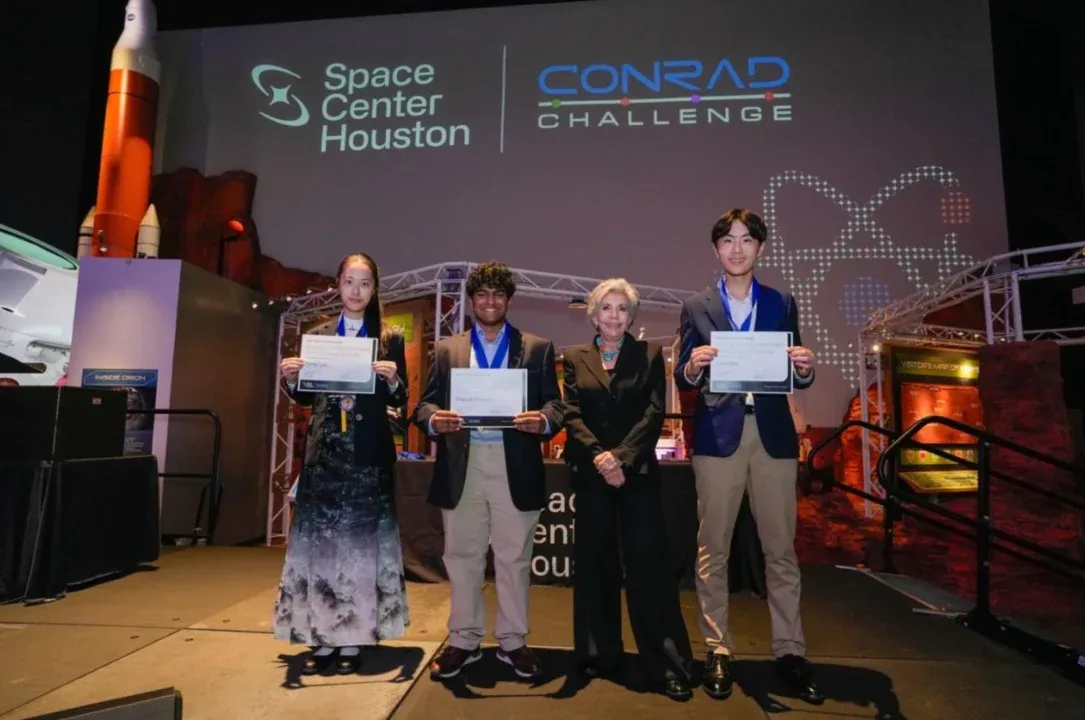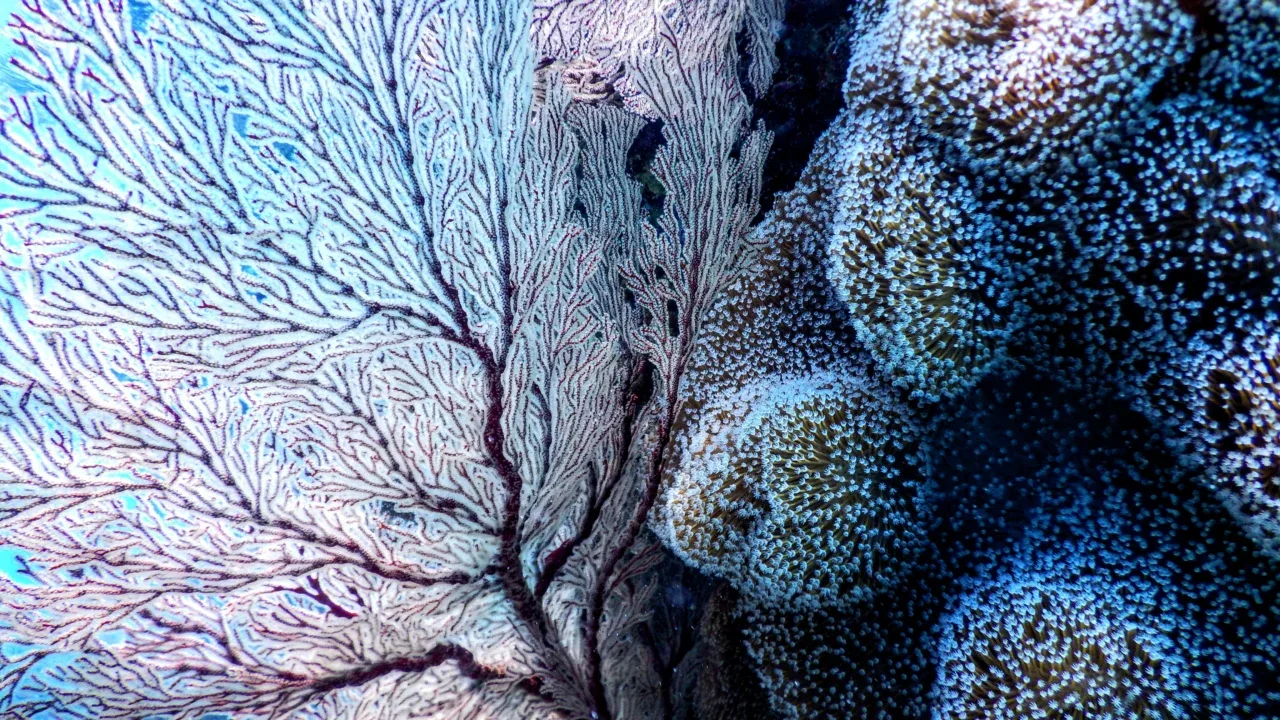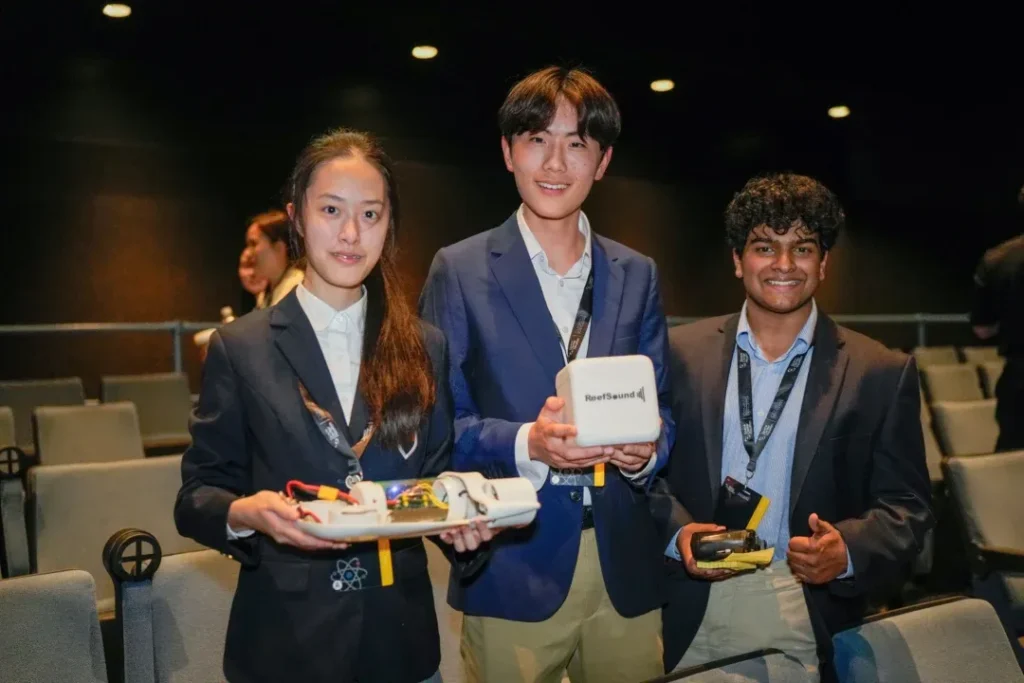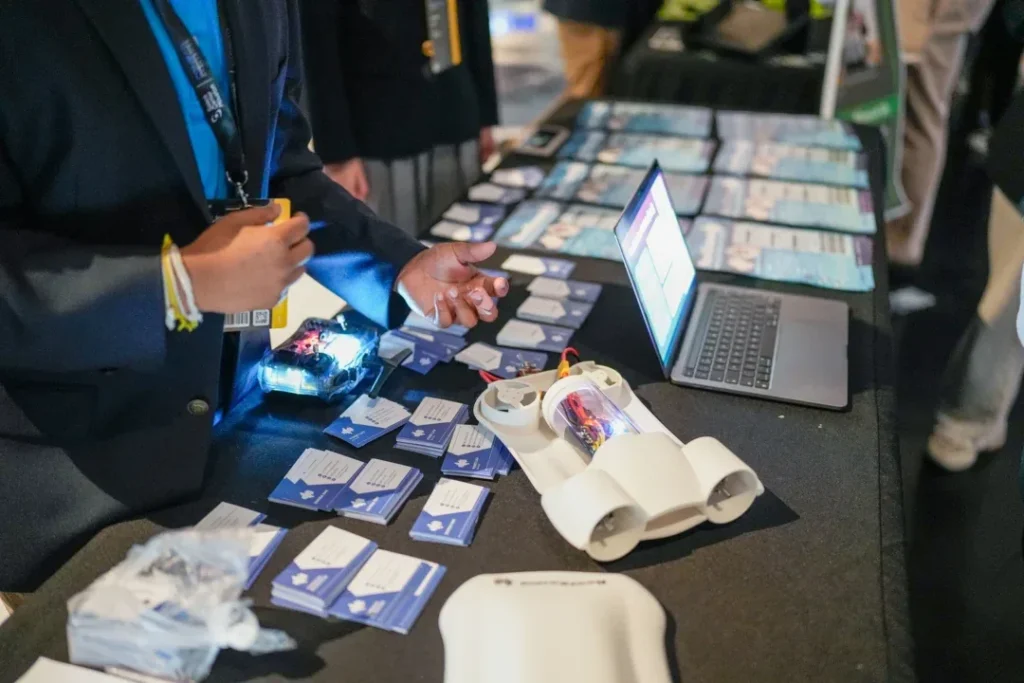Guest Article written by Alex Sinclair
A team of three high schoolers has developed an innovative method of monitoring coral reef health. ReefSound, comprising Simba Shi, Thenuk Rodrigo, and Bonnie Liu, created underwater robotic devices and artificial intelligence (AI) software for analysing coral reef health based on sound recordings. The technology they developed listens to the snapping sounds produced by coral reefs to analyse their health with a 99.4% accuracy. Compared to manual visual inspections, ReefSound offers a cheaper and more efficient method of detecting coral health threats through a holistic analysis of the entire marine ecosystem.
The team members came together from different countries to make an impact through technology; Simba and Thenuk from the United Kingdom, and Bonnie from China. As deeply committed environmentalists and advocates for using STEM to drive environmental change, their collective experiences and dedication to addressing the climate crisis fuelled their determination to develop ReefSound.
In April, the team took ReefSound to the international stage at NASA, competing in the Conrad Challenge, one of the world’s most prestigious high school STEM competitions, supported by organisations such as NASA and the Bezos Family Foundation. With over 2000 teams competing, ReefSound won the Conrad Challenge, and were awarded over $200,000 worth of scholarships. The team presented two key hardware devices: a remotely operated underwater vehicle (ROV) for coral surveillance and the ReefBox, a stationary hydrophone device. Both utilise their AI technology for in-situ coral health assessments.

The inspiration behind ReefSound stemmed from the urgent need to protect and restore coral reefs. By providing cheaper and more efficient analysis of coral health threats, ReefSound hopes to work with restoration projects and play a crucial role in the battle against coral degradation. Simba, Thenuk, and Bonnie are committed to continue contributing to global conservation efforts of these vital ecosystems.


